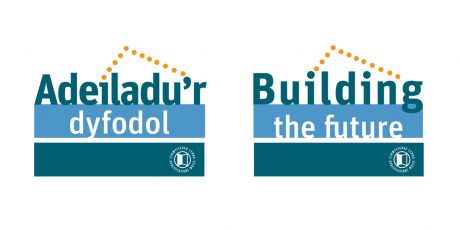
Construction and Built Environment Qualifications Reform
A new suite of Construction and Built Environment qualifications are being developed to meet the skills needs of Wales for learners in schools, colleges and on apprenticeships. Beginning in September 2021, the new qualifications will offer clear progression from learning and into employment in the sector. Construction and the built environment is one of the most important employment sectors in Wales.
Working with Industry Stakeholders
Industry representatives are significant to the success of this new suite of qualifications. The knowledge and competencies that are included in the qualifications are being shaped by employers in Wales. Working with CITB, BESA, ECA, APHC and Cadw, amongst others, we will make sure that what is learnt is relevant to what the industry needs in their recruits, reducing the need for re-training once a learner moves into the world of work.
The Qualifications
A thriving Welsh language. Many learners will have a Welsh-language preference, and our new qualifications, and official support material, and apprenticeship qualifications are helping to support our bilingual nation by ensuring that all learners will be able to be assessed in Welsh and/or English.
New GCSE and AS/A level Built Environment qualifications will be delivered in schools and colleges. These qualifications provide hands-on tasters of practical skills while introducing knowledge and understanding of the built environment that will prove valuable to learners progressing into further or higher education. The new AS/A level will provide an exciting new route into degree programmes such as surveying, architecture and construction management.
The new Foundation/Core in Construction and Building Services Engineering qualification will provide learners with a broad introduction to the sector as a whole, including developing their employability skills and ability to perform tasks in ways that protect health, safety and wellbeing. Learners will also develop introductory practical skills in two trade areas, enabling them to make an informed choice about their future trade and to draw on these skills in their future careers. Having completed Foundation, learners will be well prepared to start an apprenticeship. This qualification is designed primarily for full-time study and will be awarded at level 2.
The Progression qualification provides a route for learners to continue to develop their skills in full-time further education for another year, if they do not progress directly to an apprenticeship upon completing their Foundation qualification. Learners specialise in a single trade, developing their knowledge, skills and understanding of current practice in the trade and changes over time, while also continuing to develop their broader employability skills.
The apprenticeship qualifications can be taken by learners following a wide range of trade pathways. They allow learners to demonstrate the range of their knowledge, skills and understanding of their trade specialism, including of the nationally-recognised standards for that trade. Learners will also study sector practices within Wales.
Keep up to date with the development of these qualifications by signing up to The Slate.
For more information visit the Skills for Wales, WJEC or Qualifications Wales websites.
More News Articles
« CCRSP informing Welsh Government’s COVID-19 pathway to recovery — Employer demand for apprenticeships rises by 40% in Wales since September »


